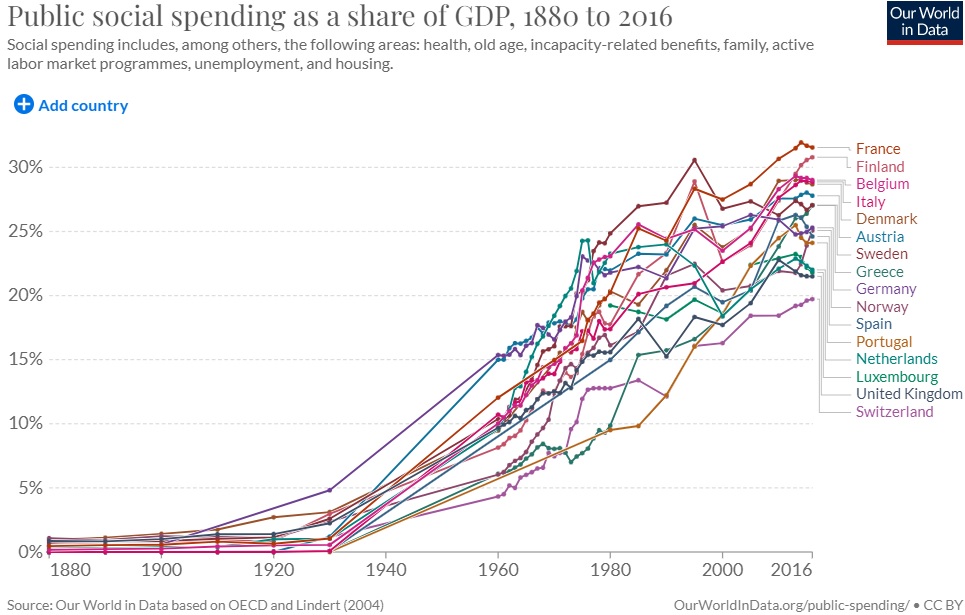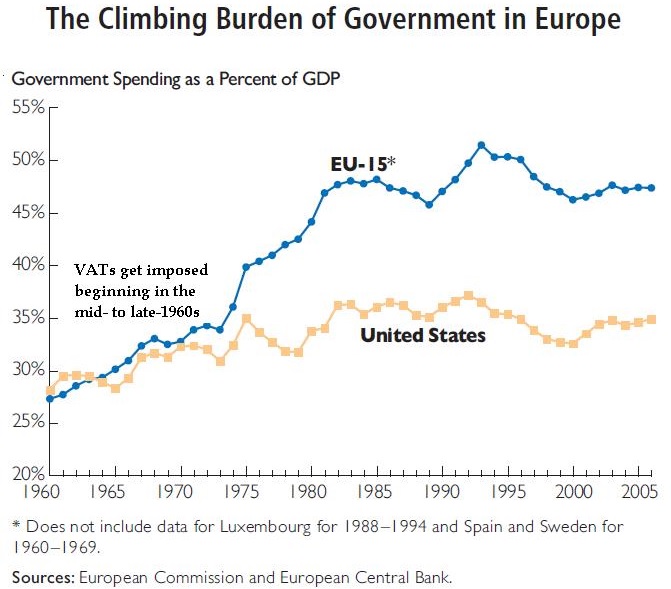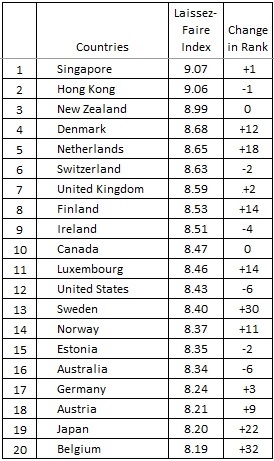In this clip from an interview with Chile’s Axel Kaiser, I discuss “Wagner’s Law” and the lessons to be learned from fiscal policy in Western Europe.
If you don’t want to watch the video, my discussion can be summarized in three sentences.
- Yes, welfare states in Western Europe are comparatively rich by world standards.
- But those countries became rich when they had relatively small governments.
- Adopting high taxes and big welfare states has since stunted their economic growth.
And here’s a fourth sentence that I should have mentioned.
- They compensate for bad fiscal policy by having laissez-faire policies in other areas.
I expect that some people won’t accept my argument without some supporting evidence, so I’m going to share some charts.
We’ll start with this chart from Our World in Data. As you can see, nations in Western Europe has almost no welfare states prior to World War II. And it wasn’t until the 1960s and 1970s that big welfare states began to exist.

In other words, all the economic growth and industrial development that occurred in the 1800s and early 1900s took place when the fiscal burden of government was very small.
And if you want to see more charts to confirm this data, click here, here, and here.
Next we have a chart showing how the burden of government spending in the United States and Western Europe used to be similar, but then began to diverge after value-added taxes were adopted in the late 1960s and early 1970s.

Last but not least, let’s consider whether the expansion of the welfare state in Western Europe had negative economic consequences.
The answer is yes. This chart, prepared by Prof. Leszek Balcerowicz (former head of Poland’s central bank) shows that Western Europe was rapidly converging with the United States, but then began to lose ground after big welfare states were imposed (and also after improvements in American economic policy under Presidents Reagan and Clinton).

And if you want to see more charts to confirm this data, click here, here, here, and here.
P.S. Since I added a fourth sentence above, explaining that many European nation have good policies in other areas to compensate for bad fiscal policy, here’s a chart I prepared in 2018 showing how many European nations score very highly for economic freedom once fiscal policy is removed from the equation.

To see overall rankings of economic liberty, you can peruse the data from Economic Freedom of the World and the Index of Economic Freedom.
The bottom line is that Western European nations (with notable exceptions such as Italy, France, and Greece) get good scores, but would be far stronger if they had better fiscal policy.
And that’s the lesson that developing nations should learn.
P.P.S. As part of the interview, Axel and I also talked about California’s grim economic outlook.
———
Image credit: Sébastien Bertrand | CC BY 2.0.

